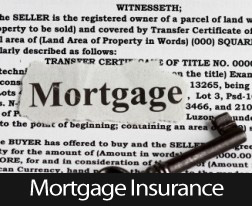 Becoming a landlord can be a profitable undertaking, providing a steady income stream and potential long-term investment growth. It is important to understand the complexities of managing a property while still under a mortgage. We will discuss the key insights into renting out your property and becoming a landlord while maintaining a mortgage.
Becoming a landlord can be a profitable undertaking, providing a steady income stream and potential long-term investment growth. It is important to understand the complexities of managing a property while still under a mortgage. We will discuss the key insights into renting out your property and becoming a landlord while maintaining a mortgage.
Understanding Your Mortgage Terms:
Before deciding if you would like to be a landlord, it’s imperative to thoroughly understand your mortgage terms. Some mortgages may have clauses restricting renting out the property without prior consent from the lender. Review your mortgage agreement carefully and consult with your lender to ensure compliance.
Seek Professional Advice:
Engage with real estate professionals and legal advisors to gain a comprehensive understanding of the legal and financial implications of renting out your property. A real estate attorney can provide valuable insights into local landlord-tenant laws and help you draft a solid lease agreement that aligns with your mortgage terms.
Budgeting for Dual Responsibilities:
Being a landlord while still having a mortgage entails dual financial responsibilities. Ensure that you budget carefully, factoring in mortgage payments, property maintenance, and potential periods of vacancy. Having a financial buffer will safeguard you from unexpected expenses and ensure the sustainability of your investment.
Choosing the Right Tenant:
Selecting the right tenant is vital to the success of your landlord venture. Perform thorough background checks, verify employment, and request references to minimize the risk of defaulting on rent payments. A reliable tenant can contribute to a stable income stream and reduce the likelihood of property damage.
Setting Appropriate Rent Prices:
Conduct market research to determine competitive rental prices in your area. Striking the right balance between generating income and attracting quality tenants is essential. Setting a rent that is too high may deter potential tenants while pricing it too low could impact your ability to cover mortgage payments and related expenses.
Emergency Fund for Repairs:
Owning a rental property means being prepared for unexpected maintenance and repairs. Establish an emergency fund to cover unforeseen expenses, ensuring that you can promptly address any issues without compromising your ability to meet mortgage obligations.
Insurance Coverage:
Update your insurance coverage to reflect your status as a landlord. Landlord insurance typically covers property damage, liability, and loss of rental income. Adequate coverage is crucial to safeguarding your investment and mitigating risks associated with property management.
Communicate with Your Lender:
Maintain open communication with your mortgage lender throughout the landlord process. Inform them of your intention to rent out the property and seek their guidance on any specific requirements or adjustments needed to stay in compliance with your mortgage agreement.
Renting out your property and becoming a landlord while carrying a mortgage requires careful planning, thorough research, and a commitment to fulfilling dual responsibilities. By understanding your mortgage terms, seeking professional advice, and implementing prudent financial strategies, you can navigate the complexities of real estate investment and turn your property into a sustainable source of income.
 When a borrower applies for a mortgage loan, the lender typically requires proof of insurance coverage before they approve the loan. An insurance binder is a document issued by the insurance company that provides temporary proof of insurance coverage until the official insurance policy is issued.
When a borrower applies for a mortgage loan, the lender typically requires proof of insurance coverage before they approve the loan. An insurance binder is a document issued by the insurance company that provides temporary proof of insurance coverage until the official insurance policy is issued. When you are buying a home, you may run into a number of hurdles to complete the purchase. One of the items that you may be asked to purchase is called private mortgage insurance, often shortened to PMI. This is a unique insurance policy that your lender, such as the credit union or bank, may ask you to buy in order to protect themselves. In this insurance policy, the bank protects themselves against losing money if you end up defaulting on your loan.
When you are buying a home, you may run into a number of hurdles to complete the purchase. One of the items that you may be asked to purchase is called private mortgage insurance, often shortened to PMI. This is a unique insurance policy that your lender, such as the credit union or bank, may ask you to buy in order to protect themselves. In this insurance policy, the bank protects themselves against losing money if you end up defaulting on your loan. Homeownership is a significant milestone that comes with a sense of security and pride. Your home is not just a place to live but also a valuable asset that needs protection. Homeowners insurance provides financial coverage for unexpected events and damage that may occur to your property.
Homeownership is a significant milestone that comes with a sense of security and pride. Your home is not just a place to live but also a valuable asset that needs protection. Homeowners insurance provides financial coverage for unexpected events and damage that may occur to your property. A land survey is an essential tool that is used to determine the exact boundaries of a piece of land or property. It is often required when buying, selling, or dividing land, and is also important for resolving property line disputes.
A land survey is an essential tool that is used to determine the exact boundaries of a piece of land or property. It is often required when buying, selling, or dividing land, and is also important for resolving property line disputes. Title insurance is one of the few types of protection policies available to homebuyers and one that is often overlooked because of its optional nature.
Title insurance is one of the few types of protection policies available to homebuyers and one that is often overlooked because of its optional nature. When you are going through the process of looking for a new home, you are probably focused on the sticker price of that home. Even though it is important to think about your down payment, your monthly mortgage payment, and the total amount of the loan, there are other expenses that you might need to cover as well. If you do not put down enough money, there is a chance that the lender could ask you to pay for something called private mortgage insurance. What is private mortgage insurance and how much do you have to pay? There are several important points that you should keep in mind.
When you are going through the process of looking for a new home, you are probably focused on the sticker price of that home. Even though it is important to think about your down payment, your monthly mortgage payment, and the total amount of the loan, there are other expenses that you might need to cover as well. If you do not put down enough money, there is a chance that the lender could ask you to pay for something called private mortgage insurance. What is private mortgage insurance and how much do you have to pay? There are several important points that you should keep in mind. Many homeowners do not realize that the risk of a flood is a significant factor that plays a role in not only homeownership but also the closing process. Even though flooding is a major risk, many homeowners do not carry enough coverage. Without proper flood insurance, homeowners risk losing millions of dollars. Therefore, it is prudent for those who are looking for a home to factor flood insurance into their home search. This can streamline the closing process down the road.
Many homeowners do not realize that the risk of a flood is a significant factor that plays a role in not only homeownership but also the closing process. Even though flooding is a major risk, many homeowners do not carry enough coverage. Without proper flood insurance, homeowners risk losing millions of dollars. Therefore, it is prudent for those who are looking for a home to factor flood insurance into their home search. This can streamline the closing process down the road. For those who are thinking about buying a house in the near future, they are probably in the process of tabulating up all of their expenses. One of the common expenses is home insurance. Even though home insurance is certainly recommended, is it actually required? There are many situations where it is required. At the same time, even when it is not required, it is still a good idea. When it comes to homeowners’ insurance, there are a few important points to keep in mind.
For those who are thinking about buying a house in the near future, they are probably in the process of tabulating up all of their expenses. One of the common expenses is home insurance. Even though home insurance is certainly recommended, is it actually required? There are many situations where it is required. At the same time, even when it is not required, it is still a good idea. When it comes to homeowners’ insurance, there are a few important points to keep in mind.